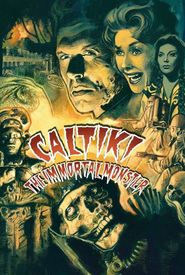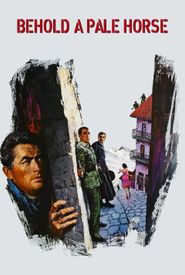Daniela Rocca, a stunning and talented model, actress, and writer, was born in one of the poorest districts of Sicily, Italy, with a dream to become a writer. However, she took a different path and entered a beauty pageant, eventually becoming Miss Catania in 1953, and later competing for the Miss Italy title. This led to her screen debut in 1954, in the film "La Luciana".
Rocca's early success in Italian cinema was marked by her appearances in horror films, such as "Caltiki, the Immortal Monster", and international productions, including "Austerlitz" directed by Abel Gance. Her captivating looks made her a natural fit for the péplum genre, where she starred in films like "Judith and Holofernes", "The Legions of Cleopatra", and "The Queen of the Amazons".
However, it was her role in "Esther and the King", a co-production between Italy and the United States, that cemented her status as a talented actress. In this film, she played the adulterous Queen Vashti, who performs a daring dance, baring her breasts as an act of defiance to King Ahasuerus, a bold move for the time.
In 1961, director Pietro Germi cast Rocca in "Divorce Italian Style", a comedy that criticized the prohibition of divorce in Italian society. Germi's decision to make her play an unattractive wife with a mustachioed upper lip was seen as a courageous move for a young symbol of Mediterranean beauty. The film became an international hit, and Rocca won the Best Actress award at the Avellino Neorealism Film Festival.
Despite her success, Rocca fell deeply in love with Germi, but he rejected her. This led to a severe depression, and she attempted suicide. Although she continued to appear in films, by 1963, she was considered unreliable and received no film offers.
Rocca's life took a turn for the worse, and she fell into a state of severe depression. She was hospitalized in Palermo and spent years recovering. In 1978, she gave an interview to Marco Bellocchio for the documentary "The Cinema Machine", in which she spoke about being abandoned by her former colleagues and the stigma of being labeled as "crazy".
In the later years of her life, Rocca lived near Catania, in a retirement home, where she wrote several books, including "Secret Agent with License to Live", "Lawyer for Rent", "Condemned to Death", and "Psychoanalysis, Dreams, and Fantasies Hidden in the Mind", as well as a poetry collection called "Ara".
Rocca's life was marked by both short-lived fame in cinema and unrequited love. She was the subject of two literary homages: Argentine poet Juan Gelman dedicated a poem to her called "Theory About Daniela Rocca", and Italian playwright Domenico Trischitta wrote a drama in two acts called "Quick Sands", based on her life, which premiered in 2016.






























